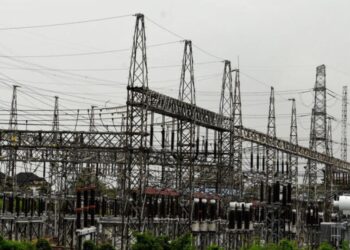German municipal companies, in charge of local energy supply, need “fifty” billion euros of state aid to cope with soaring prices, the sector’s organization said Thursday.
“We are talking about an amount of about fifty billion euros,” a spokesman for the organization VUK, which brings together 1,500 municipal companies, told AFP.
The federation says it is “in discussion” to obtain the release of public aid that would further increase the crisis bill for Olaf Scholz’s government, which is already heavily burdened by aid to households and the energy sector.
“We need cash for municipal services, which have to buy gas up to ten times more expensive than before,” VUK added.
In Germany, the local public companies are enterprises dependent on the municipalities, which supply electricity, water or gas to the citizens.
The country is facing a surge in energy prices, against the backdrop of the cessation of Russian gas supplies, which accounted for 55% of the country’s supply before the war in Ukraine.
Yet these entities cannot pass these costs on to their customers, who “simply cannot afford” the difference, the organization says. “The (federal) state must recognize the need to act,” the organization stresses.
For the government of Olaf Scholz, the energy crisis is becoming a bottomless pit of expenses.
Earlier this week, the state unveiled a 30 billion euro aid plan to save and nationalize Uniper, the country’s largest gas importer, which is threatened with bankruptcy.
In early April, Berlin had to take control of Gazprom’s former German subsidiary, Gazprom Germania, to secure its supply, injecting 9 to 10 billion euros in aid. According to the weekly Der Spiegel, a nationalization should follow, because the public trusteeship is limited to the end of September.
Finally, the German energy company VNG, the country’s third largest importer of gas, has also just called on the State to help it cope with its losses.
This huge expenditure casts doubt on Berlin’s ability to return next year to the “debt brake” rule, which prohibits it from taking on more than 0.35% of GDP per year.
A new gas tax, paid by the consumer, should help spread the extra cost paid by gas importers, but its implementation has been causing tension for weeks even within the government coalition.






